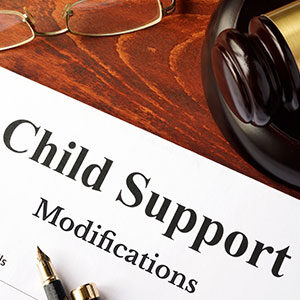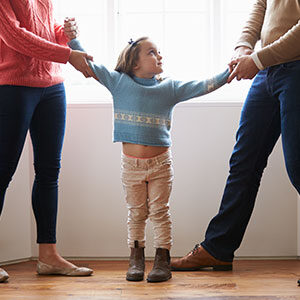Have you ever wondered whether a child’s statement, made outside the courtroom, can impact the outcome of a legal case? Imagine a custody dispute where a child reveals information about their experiences—this could be pivotal, but can it be used in court?
The legal system is structured to protect everyone’s rights, and hearsay rules exist to ensure fairness. However, when it comes to children, exceptions are sometimes made to give their voices a chance to be heard.
At Daniel Ogbeide Law, we understand how emotionally charged family disputes involving children can be. As a leading family law attorney in Houston, we guide families through these sensitive situations, ensuring that children’s rights are protected and that legal standards are met.
Whether you’re dealing with child custody issues or broader family disputes, we’re here to help you navigate the complexities of family law.
This blog discusses the circumstances under which child hearsay can be admissible in court, offering insight into the exceptions and legal standards that balance a child’s voice with a fair trial.
What is Hearsay?
Hearsay, in its simplest terms, refers to a statement not originally made in court, but presented in court to prove the truthfulness of the asserted matter. Under usual circumstances, hearsay is not admissible as evidence because the person who made the statement is not available for cross-examination. Cross-examination is crucial as it allows both sides to question the reliability of the statement.
Child Hearsay: An Exception to the Rule
While the general rule is that hearsay is inadmissible, there are exceptions for children, particularly in family law cases. Courts recognize that children may not always be able to testify in a traditional courtroom setting due to age, trauma, or fear. In such cases, child hearsay may be admitted under certain conditions to ensure the child’s perspective is included.
Here are some of the common exceptions where child hearsay may be admitted:
- Statements about Abuse or Neglect:In cases involving allegations of child abuse or neglect, courts may allow hearsay statements made by the child to a trusted adult, such as a teacher, doctor, or family member. Courts prioritize the protection of the child in such cases, and these statements can offer crucial insight when direct testimony is not feasible.
- Excited Utterances:An “excited utterance” is a statement made in response to a startling event or under the stress of excitement. For example, if a child blurts out something immediately following an incident, this may be admitted as evidence. The rationale behind this exception is that the spontaneity of the statement reduces the likelihood of fabrication.
- Medical Diagnosis or Treatment:If a child makes statements to a medical professional during the course of receiving treatment, those statements may be admissible under the medical treatment exception to the hearsay rule. The reasoning is that people generally provide truthful information when seeking medical help, and the child’s statements can aid in diagnosis and treatment.
- Residual Exception:The residual exception allows for hearsay statements that don’t neatly fit into other exceptions but are considered trustworthy. If the child’s statement has circumstantial guarantees of trustworthiness and is vital to the case, a judge may admit it under this catch-all exception.
Factors Courts Consider When Admitting Child Hearsay
Courts take great care when determining whether a child’s hearsay statement should be admitted. Here are some factors they consider:
- Age and Maturity of the Child:Younger children may have difficulty distinguishing between reality and imagination. The court will evaluate the child’s age and level of maturity to assess the reliability of their statements.
- Circumstances Surrounding the Statement:Was the child under duress or being coached by an adult? The court will examine the context to ensure that the statement is genuine and not influenced by external pressures.
- Reliability of the Statement:The court will also evaluate the consistency of the child’s statement with other evidence in the case. If the hearsay statement aligns with other facts, it is more likely to be admitted.
Balancing the Child’s Rights and Fair Trial Standards
The legal standards that apply to child hearsay aim to balance two important concerns: ensuring that the child’s voice is heard and preserving the fairness of the trial. The child’s statement must be reliable, and admitting it must not unfairly prejudice the other party in the case.
For instance, in a custody battle, one parent might claim that a child made statements indicating a preference for them. Courts will carefully assess whether the child’s statements were made independently or were the result of manipulation.
Why Child Hearsay Matters in Family Law Cases

In family law cases, particularly those involving child custody in Houston, a child’s welfare is paramount. Courts are often tasked with making decisions that affect the child’s living situation, education, and emotional well-being. Admitting child hearsay can sometimes provide insight into the child’s experience, especially if the child is too young or traumatized to testify.
As family lawyers in Houston, TX, we recognize the importance of ensuring that all relevant information is considered when the court makes decisions about child custody. Our role is to advocate for the best interests of the child while adhering to the legal standards that protect all parties involved.
How We Can Help
Child custody disputes can be fraught with emotional and legal challenges, especially when issues like child hearsay come into play. As experienced family law professionals in Houston, we at Daniel Ogbeide Law are committed to protecting your child’s interests while ensuring that legal processes are followed correctly. Whether you’re navigating a complex custody dispute or need advice from a family lawyer in Houston, we are here to guide you through every step of the way.
If you’re facing a family law issue, including child custody in Houston, contact Daniel Ogbeide Law today by calling 832-321-7005. We have the experience, knowledge, and compassion to help you resolve your case while ensuring that your child’s voice is heard and protected.

